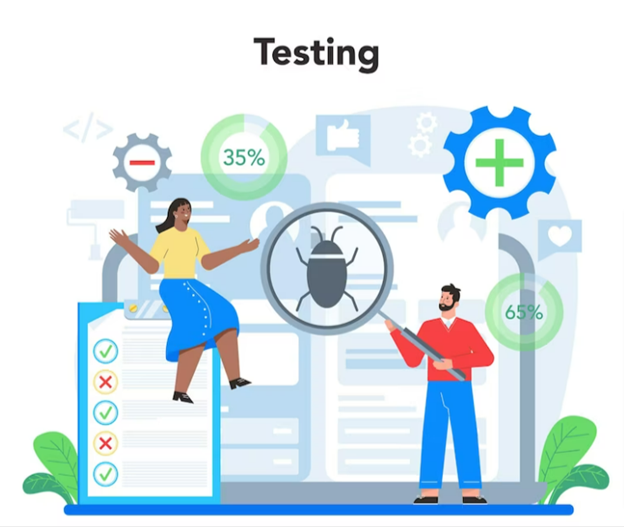Simplify Software Testing and Find Benefits with a Comprehensive Test Management Tool

Software testing plays a critical role in ensuring the quality, reliability, and performance of applications. As testing processes become more complex and demanding, organizations are turning to test management tools to streamline their testing efforts. A robust test management tool offers a centralized platform that simplifies test planning, execution, and reporting. In this article, we will explore the benefits of using a comprehensive test management tool, emphasizing its integration with test automation tools and its role in enhancing software testing practices.

Understanding Test Management Tools: A test management tool is a software solution that helps testers and QA teams manage the entire testing process efficiently. It provides a centralized repository to plan, organize, execute, and track tests, allowing for effective collaboration among team members. Test management tools offer features like test case management, test execution tracking, bug tracking, test reporting, and integration with other testing tools.
Benefits of Integrating Test Automation Tools with Test Management Software:
- Streamlined Test Execution: Integrating test automation tools with test management software automates the execution of test cases. This significantly reduces the time and effort required for manual testing, allowing testers to focus on more critical aspects of the testing process. Automation enhances test coverage and enables faster feedback on software quality.
- Increased Test Efficiency: Test automation tools integrated with test management software enable the reuse of test scripts, test data, and configurations. This reduces redundancy and eliminates the need for repetitive manual efforts. Testers can execute a large number of tests quickly and consistently, leading to improved efficiency and faster time-to-market.
- Centralized Test Reporting: Integrating test automation tools with a test management tool provides consolidated test results and reports in a centralized location. This allows for real-time visibility into testing progress, test coverage, and defect trends. Comprehensive reports enable stakeholders to make informed decisions and prioritize testing efforts.
- Improved Collaboration and Communication: Test management software facilitates seamless collaboration and communication among team members involved in testing activities. Testers, developers, and stakeholders can access test artifacts, track test progress, and communicate effectively within the tool. This enhances transparency, reduces miscommunication, and fosters collaboration across distributed teams.
- Enhancing Software Testing Practices with Test Management Tools:
- Test Planning and Organization: A test management tool helps testers plan and organize their testing efforts systematically. It allows for defining test objectives, creating test plans, and mapping requirements to test cases. Testers can prioritize test cases based on risk, complexity, or business criticality, ensuring comprehensive test coverage.
- Test Execution and Tracking: Test management tools provide a structured approach to executing and tracking test cases. Testers can assign test cases to specific testers, track their execution status, and log defects within the tool. This enables better visibility into test progress, identifies bottlenecks, and facilitates timely issue resolution.
- Defect Management: A test management tool integrates defect tracking capabilities, allowing testers to log, track, and manage defects throughout the testing lifecycle. Testers can associate defects with specific test cases and track their resolution status. This streamlines defect management and ensure that critical issues are addressed promptly.
- Test Reporting and Analysis: Test management tools generate comprehensive reports and metrics that provide insights into the testing process. Testers can analyze test results, identify trends, and make data-driven decisions to improve testing efficiency and effectiveness. Stakeholders gain visibility into project status, testing progress, and the overall quality of the software.
In the dynamic world of software testing, adopting a comprehensive test management tool is essential to streamline testing processes, enhance collaboration, and achieve optimal software quality. By integrating test automation tools, organizations can achieve greater efficiency and accuracy in test execution. Embrace the power of a test management tool to simplify your testing efforts, improve collaboration, and deliver high-quality software products to market faster.
To understand why QARA Enterprise is the only test automation solution your QA team will ever require, learn more about its features. If you email us at info@qaratest.com or visit our website, we'll respond to you right away.
